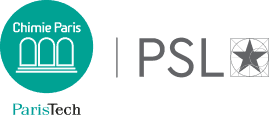Analytical physico-chemistry for bioanaysis and environment
Multiple choice questions, Written report and oral presentation of the project
Theoretical courses cover the most important methodologies in all areas requiring monitoring and analysis, allowing access to quantitative information and interaction in solutions. These are essentially separative and electroanalytical methods, in classical or miniaturized form. The aspects of separation, sample processing, coupling of separative methods with sensitive and specific detection methods (fluorescence, mass spectrometry…) are thus addressed. In addition, the theme “quality control” is presented, including standards, traceability and life cycle analysis. The engineer is increasingly being asked to control the purity and stability of a product by traceable methods (analytical traceability of measurements, validation of a method, sampling, calibration, statistical methods, reporting and archiving, regulation, proficiency testing), with a view to their accreditation by the standards, which are now at an international level. In the context of sustainable development, the life cycle analysis (or ecobalance) of products is presented.
The module consists of project work (6 to 7 students per project) with the support of a theoretical teaching support available online and conferences given by specialists in different fields. The objective of this project is to find in the scientific literature methods (electrochemical, chromatographic and electrophoresis) to quantify traces/ultratraces (synthetic impurities, pollutants, biomolecules for pharmaceutical application…) in complex matrices, defined by the project. The different methods selected will be compared in terms of precision quality, ease of analysis, etc……. and a choice will be made on the most appropriate method.
The objective of this module is to obtain a complete and critical overview of the different methodologies for trace or ultra-trace analysis in complex matrices (biological or environmental). The student must find, analyse and criticize the existing bibliography in the proposed field, then use his knowledge to select the most appropriate method or even be a force of proposal to imagine a new methodology. All the steps of an analytical method are studied (sampling, processing, separation, detection).
Teaching language: FR
Documents:
english articles
